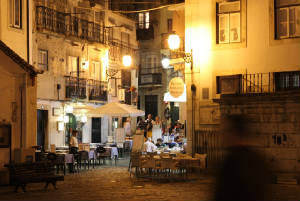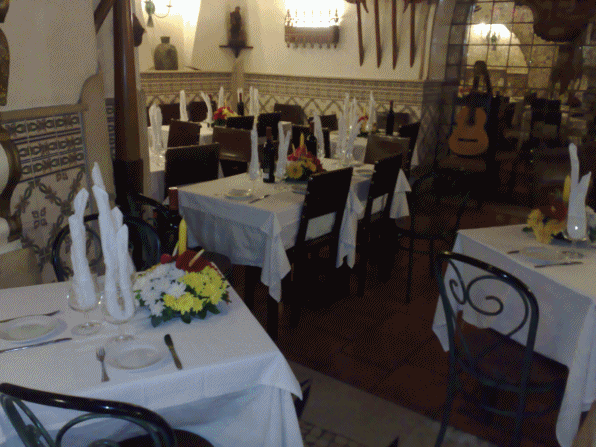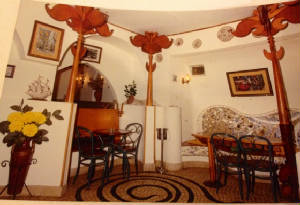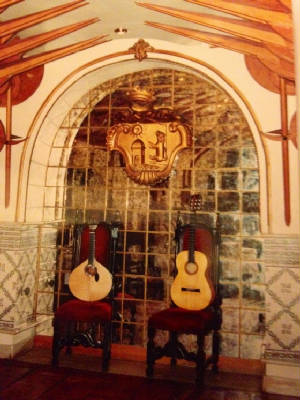|

Situado em Alfama, um dos mais característicos bairros de Lisboa, o restaurante típico
"Taverna d'el Rey" oferece-lhe, no ambiente castiço da velha cidade, o fado , e as melhores especialidades da cozinha
regional portuguesa.
Inicialmente uma tasca de venda de carvão e vinho, esta casa de fados é propriedade
da fadista Maria Jô-Jô, há já vinte e oito anos.

Maria José Botas
(Empresária)


Maria Jô-Jô remodelou-a, decorando o tecto com madeira a fazer lembrar as caravelas
de antigamente e calcetando o pavimento com calçada portuguesa, com desenhos de grandes claves, que nos transportam imediatamente
aos acordes do fado que aqui podemos ouvir.
Entre para apreciar um verdadeiro recanto fadista neste bairro cheio de tradições
alfacinhas.
Todas as noites das 18h às 3h da madrugada, num castiço espectáculo de Fado
AQUI O FADO É MAIS FADO...
|
 |
|
|
|
 |
|
 The Fado is a singing expression of the state of the soul, melancholy or happy, of praise or satire. The Word – from
the latin FAtum – signifies Prophecy: life commended by the Oracle and which nothing can change. MARIA SEVERA, a
gipsy singer and the most famous interpreter of the Fado in her time (19th Century). Her mother, a Portuguese from Ovar
and her father a gypsy, she soon astounded Lisbon with her beauty and expressiv singing. The 13th Count of Vimioso fell madly
in love with her. That condemnend love satisfied the court intrigues and inspired dramatists and poets. There are those
who think the Portuguese soul is a sad one because the Fado is generally sad. However, to assume that a song can contain the
soul of a people is the same as looking in a glass of water for the image of the sea.

 Le Fado c’est l’expression chantée d’un état d’âme, mélancolique ou gai, d’éloge ou de satyre.
Le mot – du latin Fatum – signie Prédiction: la vie préconisée par l’Oracle et que rien ne pourra altérer.
MARIA SEVERA, une chanteuse gitane, fut l’interprète la plus célebre du Fado, de sons temps (XIXème Siècle).
Fille d’une portuguaise de Ovar et d’un gitan, elle surprit bientôt Lisbonne avec sa beauté éxotique et son chant
expressif. Le XIIème Comte de Vimioso s’est épris d’elle. Cet amour condemnable satisifit les
intrigues de la cour et inspira des dramaturgues et des poètes. Certain croit triste lâme portugaise parce que le Fado est
généralement triste; pourtant, supposer qu’une chanson puise contenir la psyche d’un peuple c’est la meme
chose que chercher, dans un verre d’eau, l’image de la mer.
|
 |
|
|
|

